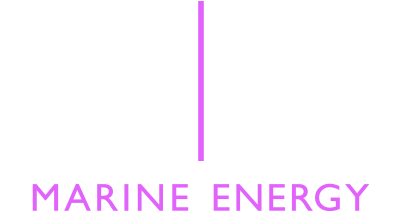20|20 Marine Energy and BunkerMetric sign agreement to launch predictive analysis technology for 2020 compliance
20|20 Marine Energy and BunkerMetric announced the signing of a Memorandum of Understanding (MoU), which will see the launch of a new predictive analysis tool that enables ship owners, operators and fuel buyers to understand the financial and operational impact of the impending MARPOL Annex VI global 0.5% sulphur cap on their fleets when it comes into force on 1st January 2020.
Per Funch-Nielsen appointed Senior Associate for Europe to drive further growth
The move is on the back of increased demand from all stakeholders involved in the marine energy supply chain who need support in developing strategies and solutions to meet the challenges, and seize the opportunities of the rapidly changing fuel supply market.
Study to include impact of landmark regulation and insights influencing decision-making for all stakeholders in the marine fuel supply chain.
Marine Energy Consulting Ltd. (MECL) and 20|20 Marine Energy, two leading consultancies in this field, today announced that they will collaborate to produce a comprehensive evaluation of the impact of MARPOL Annex VI global sulphur regulations on the shipping industry.
When shipping rode the financial crisis of 2008/2009, there was always a view that certain companies in the industry were just too big to fail.
It was assumed that the banks, shareholders and other industry stakeholders and institutions would give them their full support to ensure continuity; the alternative was simply not an option.
Greenhouse gas emissions in shipping dominated debate at the 69th meeting of the International Maritime Organization’s Marine Environment Protection Committee (MEPC), where it was announced that the results of a fuel availability study would be revealed at the next meeting, MEPC 70, in October.
Concerns about a distillate shortage arising from a lack of marine fields meeting the 0.5% global sulphur cap could be misguided, according to maritime consultancy 20|20 Marine Energy.
For many in shipping, the collapse in the bunker price has been one of the few respites since last year.
Moving in tandem with crude oil prices, this year’s costs of 380-centistock bunker fuel — the most used type of marine fuel — are on average 45%-49% lower than 2015 in the world’s main bunkering ports, according to brokerage OceanConnect.
AUSTRALIAN liquefied natural gas (LNG) production is growing fast. And based on the research from analysts at BMI Research, a unit of the Fitch Group, it is likely to increase 50% by 2020 on the back of Australia’s ‘mega’ LNG export ventures.
Investments have topped $200 billion and over the next ten years Australia’s LNG production is set to increase from around 30 million tonnes a year to 75 million tonnes, leaving the country on track to rival Qatar – the world’s largest supplier.
London: A new consultancy, 20|20 Marine Energy, was launched last month to help companies create and implement strategies for purchasing and selling marine energy, as well as supporting the development of bunkering infrastructure.
In a changing market of increasing risk and complexity, 20|20 works with shipowners, operators and financial institutions on the buy-side, fuel suppliers and traders on the sell-side, as well as ports, and local and national governments on developing infrastructure projects. The company also provides research and insight services.
It goes without saying, that there is a good deal of luck in both life and business. Success is based on how we deal with it, what we learn and how we consolidate and take advantage of the opportunities our luck has given us. This is particularly applicable to bunkering.
The marine energy sector, as we know it today, is a relatively new creation. Until three decades ago it was dominated by both major and national oil companies.

Established by Adrian Tolson, one of the industry’s leading marine energy experts, 20|20 to offer trusted intelligence to an increasingly complex sector.
A new consultancy, 20|20 Marine Energy, was launched today to help companies create and implement strategies for purchasing and selling marine energy, as well as supporting the development of bunkering infrastructure.